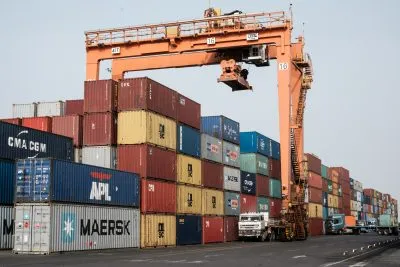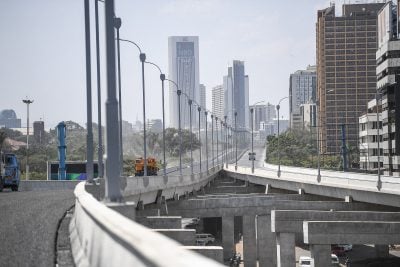Ghanaian mobile phone owners are tearing their hair out in frustration at the poor quality of service they get from operators. Recently, all six providers in the country were slapped with fines for sub-standard performances. Operators, on the other hand, blame the country’s working environment for their shortcomings. Report by Francis L. Sackitey.
The poor performance of telecommunication companies in Ghana has not only attracted the fury of their customers but also censure from the National Telecommunication Authority (NCA), the authority responsible for regulating the activities of the communication industry in Ghana.
The regulator has slapped fines totalling GHc1m ($463,000) on the six major telecom companies in Ghana for their inability to meet the required Quality of Service standard.
MTN, the market leader in the industry, suffered the heaviest fine for defaulting on call congestion and call set-up time obligations over five regions of the country. There were various fines for Vodafone, the second largest by market share, Tigo, the third-biggest network operator, Airtel, Glo, the latest entrant to the industry and Expresso, the smallest of the six.
The NCA’s decision to fine the telecom companies formed part of the National Communication Authority’s quest to punish poor quality service delivery and also to ensure that consumers get value for money.
The key performance indicators used in measuring service quality included: call set-up time; call congestion rate and call drop rate. The Ministry of Communication’s National Telecommunications Policy mandates the NCA to “establish regulations for monitoring and preventing such behaviour including such penalties for operators who violate these standards as the legislature may authorise”.
What or who is to blame?
It has become common for subscribers to hear “the number you are calling cannot be reached or is out of coverage area or switched off” even when the person you are calling is standing by you with the phone on.
Apart from the frustration this causes to mobile phone users, business people complain that the poor performance of the telecom companies is having a dire effect on their businesses. Internet connectivity has been even worse as customers, after spending huge sums of money to buy modems and subscribe to broadband systems, are often unable to access their internet accounts.
Speaking to African Business, the head of corporate communications at Airtel, Donald Gwira, admitted that service delivery had been poor but explained that the company has been hit by the constant theft of its cables and generator batteries. He also blamed the frequent electricity power cuts from the national grid. Gwira has, however, apologised to his customers and says that the company is working to install solar power generators to forestall the frequent power cuts.
The biggest offender, MTN, did not respond to this reporter despite many attempts to find out what it thought the problem was. It had also not apologised to its customers at the time of going to press.
Ghana Chamber of Telecommunications (GCT) – established to guide policy in the telecommunications industry, promote and protect the interests of operators – reacted to NCA’s verdict by stating that given the robust competition in the mobile industry in Ghana, there was no room for “poor services by any telecom operator who expects to survive and justify its huge investments”. In short, it rejects the NCA’s conclusions that the industry in Ghana is performing poorly.
The CEO of GCT, Kweku Sakyi-Addo, insists that mobile operators in Ghana have consistently raised concerns over the key quality of service indicators used by the NCA. He said that while telecommunication operators share the NCA’s desire to ensure that subscribers in Ghana have the same quality of service as in developed countries, “there are many external factors within the Ghanaian environment which make such a desire difficult to attain; despite consistent committed efforts by operators”.
These factors, according to the CEO, include electric power outages, theft of diesel from backup generators, and the cutting of cables. “The problem of fibre cuts is of major concern and the Telecoms Chamber is currently working with the Ghana Highways Authority, Department of Urban Roads and road contractors to minimise the occurrence,” he said.
The CEO also said that concerns about radiation from telecom masts, though not borne out by scientific facts, have also affected the roll-out of mast sites in some communities. He added that metropolitan, municipal and district assemblies levy astronomical charges on telecom infrastructure, with massively discriminatory disparities compared to those imposed on other industries. “These charges inhibit the roll-out of infrastructure and have an impact on quality of service,” he said.
According to Kweku, the Telecommunication’s Chamber and its members have persistently drawn the attention of the NCA and other responsible authorities to the effect these problems have on quality of service. “We had, over the past several months, chosen the path of dialogue with the institutions and agencies concerned and we look forward to a speedy resolution.”
Kweku has called on the NCA to reconsider. “On the basis of the importance and impact of the telecoms industry on all sectors of the economy and on social life, we implore the NCA to reconsider its rigid posture towards the telecoms operators with a view to supporting it towards further growth in order to lead the industry to even greater economic and social benefits for the Ghanaian people,” he said.
Government cash cow?
It is obvious that the telecommunication companies are facing an uphill struggle given the fierce competition, the market sizes and tariffs imposed on them. By the end of 2011, there were more than 19.53m mobile subscribers in Ghana, and the market continues to grow.
MTN had a leading 48.75% market share followed by Tigo with 20.94%, Vodafone with 18.06%, Airtel with 9.75% and Expresso, with the only Code Division Multiple Access (CDMA) (a channel access method used by various radio communication technology), with 1.15%.
The struggle for market share has forced all the networks to progressively lower their tariffs and this has meant that revenues are being driven by market expansion rather than rising revenues per subscriber. However, mobile telephony penetration in Ghana is still increasing from 50% in 2008 to 61% in 2009 and 67% in 2010. By mid 2011 it had risen to 79.1% according to Ghana Statistical Service.
The mobile telephone sector in Ghana is one of the biggest and most important industries in the country in terms of cash flows, consumer spending, capital expenditure, taxes and levies accruing to the public treasury and contribution to GDP.
Over the three years up to 2010, the industry has generated revenues of roughly $900m a year. In 2010, the six telecom companies together made capital expenditure of $350m out of the country’s gross capital formation of $5bn.
The taxes and levies paid by those companies at $300m added up to 10% of government’s income of $3bn for 2009. Altogether, the industry contributed $450m out of Ghana’s GDP of $22.4bn in 2011.
The mobile telephone industry now employs about 1.5m people in Ghana either directly or indirectly. The industry has some 5.6bn in investments in Ghana. The large cash flows and the sheer visibility of the mobile telephone companies have encouraged the public sector to see it as a major source of revenues and have therefore piled up various forms of taxes.
According to the Ministry of Finance, the companies pay corporate income tax, withholding taxes on dividends, 15% VAT and National Health Insurance Levy (NHIL), additional VAT on management fees and royalties, a 6% Communications Levy tax on customer charges and interconnectivity, incoming international call tax of 6 US cents per minute and a NFSL/CIT tax. In addition there are annual regulatory fees paid to the NCA. Indeed, government captures 37% of operators’ revenue.
These revenues notwithstanding, the government of Ghana has been trying to ensure that the telecoms operators do not take undue advantage of the citizens, hence the constant check on their operators.
Whatever the cause of the problems, Ghana’s mobile customers feel they are being short-changed by service providers and want something done about it.
Kofi Kapito, the executive director of the Consumer Protection Agency (CPA), the only consumer protection agency in Ghana, has been pushing for legislation to empower the agency to be able to take action against companies that take undue advantage of customers.
“As it stands now, it’s very difficult to only persuade service providers without taking an action against their poor performances,” he says.
Want to continue reading? Subscribe today.
You've read all your free articles for this month! Subscribe now to enjoy full access to our content.
Digital Monthly
£8.00 / month
Receive full unlimited access to our articles, opinions, podcasts and more.
Digital Yearly
£70.00 / year
Our best value offer - save £26 and gain access to all of our digital content for an entire year!
 Sign in with Google
Sign in with Google 



